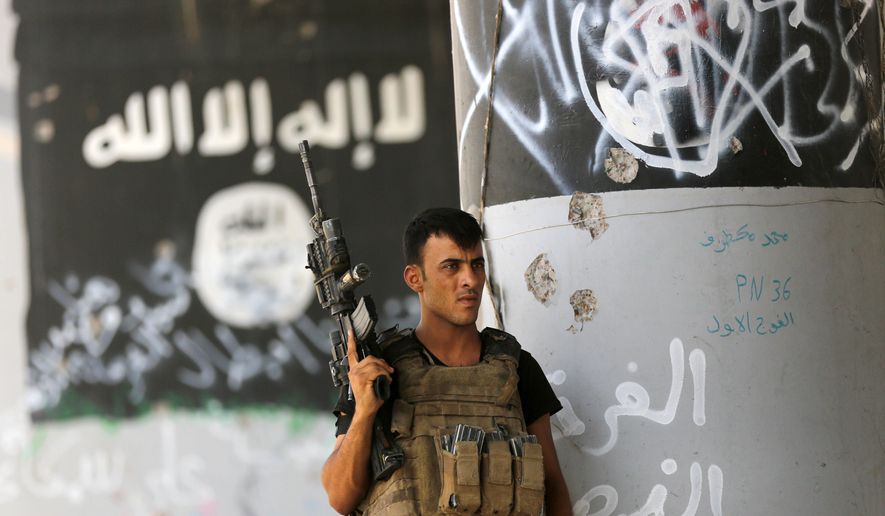The opportunity to flush out the Islamic State from its self-proclaimed Iraqi capital of Mosul by the the end of the year could be slipping out of reach of American-backed Iraqi troops and local militias, despite the recapture of the critical city of Fallujah.
Iraqi government officials took control of Fallujah’s city center, 40 miles west of Baghdad, late Sunday and by Monday had begun flushing out the remaining pockets of Islamic State, also known as ISIS or ISIL, from the besieged city, according to local reports.
Pentagon spokesman Capt. Jeff Davis confirmed reports the city, which was the final Islamic State-held outpost in the volatile Anbar province, has been “fully liberated” and is now under government control. With its defeat in Fallujah, a city the Islamic State had held for over two years, the group has not scored “a strategic victory in over a year,” Capt. Davis said.
But when asked if the recapture of Fallujah and Anbar province writ large has put Iraqi forces in the position to wrest Mosul, the country’s second-largest city, from Islamic State, Capt. Davis replied simply: “I do not know.”
“There are a lot of things that need to happen in shaping [operations] for Mosul,” before local forces will be ready to launch its assault on the city, Capt. Davis added.
His comments are are a far cry from President Obama’s prediction in April that Iraqi forces, with the support of U.S. air power and heavily artillery, would be able to take Mosul by the end of the year.
“My expectation is that by the end of the year, we will have created the conditions whereby Mosul will eventually fall,” Mr. Obama said in an interview with CBS News in April.
Over 200 U.S. troops backed by additional American air power and a shipment of heavy weapons would be heading to Iraq to support the Mosul offensive. However, that offensive has bogged down over the last several weeks, prompting the White House to send in additional American weapons and support.
One short-term hurdle facing the Iraqi forces is how they will hold and rebuild Fallujah, which suffered over 100 U.S. airstrikes in the course of the monthlong offensive, while managing rising sectarian tensions between Sunni militias and Iraqi forces in and around the city.
Iraqi commanders “will have to figure out how they are going hold [Fallujah]” while continuing to prepare for Mosul and maintain security in Baghdad, which has been the target of almost daily bombings and attacks since the beginning of the Fallujah campaign.
Even with Fallujah’s recapture, “hard fighting remains ahead, as does the vital task of caring for the residents of Fallujah displaced by the Islamic State’s violence and beginning to rebuild the city so that its people may safely return,” Defense Secretary Ashton Carter said in a statement Monday.
Capt. Davis said the capabilities within the Iraqi security would allow those forces to handle those challenges. Iraqi forces “can walk and chew gum at the same time … they can fight this on a multi-prong basis,” he said.
• Carlo Muñoz can be reached at cmunoz@washingtontimes.com.




Please read our comment policy before commenting.